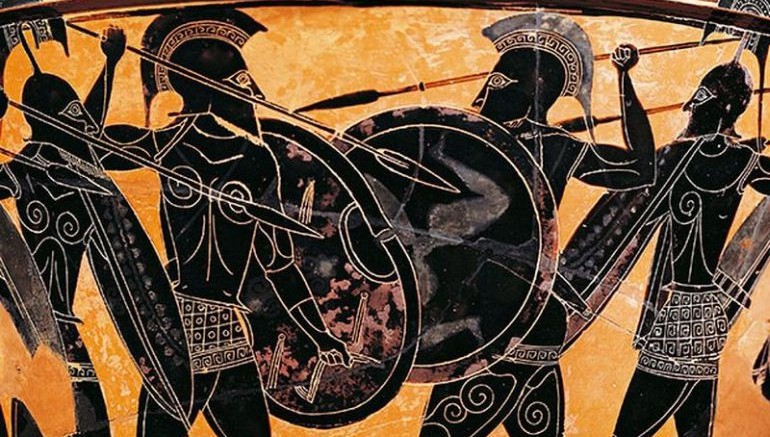
SOCO’s Women on Work and What Needs to Change
Our community has many incredible women. They’ve founded companies, run non-profits, have side hustles, and do great work for companies. Meanwhile, they also serve in the community and make SOCO (and Columbia) a better place.
So, we wanted to learn what inspires the women of SOCO, what challenges they face, and what needs to change in our society to make work more accessible for them.
Here’s what they said.
First, we asked who or what inspires their work
For some, the people in their lives have played a pivotal role.
“My mother-in-law Meredith Cox has been a big inspiration in my career. She’s a role model for me in building a career, having an equal-partnership marriage, and mothering well. I’m thankful for her example, support, and advice in work and family life,” Kaleigh Cox said.
“My mother. She’s retired now, but growing up she worked fearlessly in her job and always made time for her children,” Malai Roper explained.
And for others, the specific events caused them to change course and take action.
“George Floyd’s murder in 2020 motivated me to contribute any way that I can to helping my fellow Americans find the same beauty and respect in African Americans that they do in themselves. I already had been volunteering with historic preservation organizations but on a limited basis. The summer of 2020 changed that. Since I’m not a historian, I wanted to bring my strengths — organizational development, strategic planning and growth — to local efforts in some way,” said Dawn Dawson-House.
“A couple of years ago, I was struggling financially in one of the most expensive cities in the nation (Austin, TX). I had a $40k/year job and worked under a tyrant of a VP (think Miranda Priestly from The Devil Wears Prada). Also, the massive amount of student loan debt was getting bigger and bigger every year (because I had to put a lot of them on deferment because I couldn’t afford the minimum payment). The combination of those things and the side hustles I needed to make ends meet made me unravel. So I started looking for alternative solutions because I knew I couldn’t keep that pace much longer.
I started following bloggers publishing their income reports, like Michelle Schroder-Gardner (from Making Sense of Cents) and Melyssa Griffin. I was mesmerized by their relentless tenacity in paying off a lot of student loan debt, getting out of jobs that made them miserable, and creating a life on their terms. I devoured the content of their progressive monthly income reports and became obsessed with the idea that I could do that myself. So I did, and I’m happy I took that leap despite what others said,” Cat Treme said.
Surrounded by community and wanting to control their lives serves as the inspiration for other members.
“Having the ability to (kinda) control my own destiny,” said Fiona Martin.
“The rockstar community at SOCO!” Christina Goodman said.
Empowerment plays a big role in doing great work. So, we asked what empowered our members
A common theme in their responses; having their voices heard and a seat at the table.
“When I announced that corporate life wasn’t for me and I was starting my own online business, I got a lot of eye rolls and was told by several people to get real and “just get married and be a mom” so that someone could take care of me since corporate life was not for me.
These patriarchial statements made me even more determined that I would make this business come to profitable fruition. But I knew I couldn’t do it on my own. I needed to surround myself with a community of driven, forward-thinking entrepreneurs to lean on for support and ideas. Having a solid community (major shoutout to the SOCO community) that will keep you on that path you know you ultimately want to be on when things get tough has been a critical component to becoming an empowered business owner,” Cat explained.
“A sense of safety and respect for workspace, my voice, my POV (point of view), my strengths and shortcomings … so that I’m able to do the same for others,” Dawn explained. “I’m happy to say I feel that way at 808 (SOCO 80808).”
“Having a seat at the table makes me feel empowered. All voices should be heard. We are all unique and bring dynamic ideas that can collectively spark change,” Malai noted.
“I feel most empowered in meetings and situations where I’m asked for my opinion and that input is considered and valued. I want to feel like I’m an equal voice at the table—and I’m really thankful for a role and team where I experience that daily!” said Kaleigh.
The opportunity to tackle challenges and see their work come to life empowers other members.
“Being self-scheduled gives me a sense of control, and I thrive when working with limited micromanaging,” explained Christina.
Fiona said she loves taking ideas and putting them into action.
“Taking a large, nebulous concept or idea, turning it into action points, and seeing that idea come to life.”
Next, we asked about the unique challenges our members have faced as women in the workplace
Several members said they continue to face stereotyping and harassment.
“Not being taken seriously, being spoken down to, being accused of thinking “emotionally”, being hit on by clients, sexual harassment and assault, not being believed,” Fiona said about the issues she’s faced at work.
Malai’s also faced similar problems.
“Stereotypes. There’s this box that we as women are often put into in terms of how we should act or what we should say. As a black woman, the box is even more suffocating,” she said.
Breaking out of the “traditional” views of women in the workplace makes it difficult to be taken seriously, according to Christina.
“While many people have trouble honestly assessing their work value, women have been especially trained since toddlerhood to consider our thoughts as less valuable and less informed than other people’s. That not only makes it frustrating when we aren’t taken seriously on things we already know, but it also doubles the embarrassment if we have a genuine need for help/information and have to ask,” she explained.
The challenges of childcare and having a family, while pursuing a career, make it hard for working moms.
“When I became a mom, I wrestled for two years through whether I should stop working to be a stay-at-home mom. I’m now fully confident in my decision to work full-time, but it took me a lot more emotional work to reach that point than it probably would for a man,” Kaleigh said.
And for other members, being told what to do or how to manage their career, has been an ongoing challenge.
“I came from a woman-dominated field (tourism marketing,) so things were mostly cool. But I also spent a few years in the State Park Service and remember distinctly being told what my place was, even if they didn’t understand it. Instead of complying, I bullied my way into things and promptly got kicked out,” said Dawn.
“The biggest challenge I’ve faced as a woman in the work world (specifically in the South) is the recommendation to quit when things get tough. The loving yet patronizing statements from loved ones to get out of the working world period when things are stressful in your business or just a regular 9-5 just to get married and let someone take care of you as opposed to encouraging me to find creative solutions,” Cat said.
We asked our members to explain the things people don’t understand about being a female entrepreneur, freelancer, or employee
“When my son was born, I remember being frustrated when we would meet other couples. They’d ask my husband all about his work, then turn to me and only ask about my son’s sleep schedule. I wanted so badly—especially in those early days—for people to see my other skills and interests and talk to me about my work. I think some people have a false perception that moms only work if they have to, not because they want to. I want people to understand that I’m passionate about my work and that I enjoy talking about it!” Kaleigh explained.
Christina believes there’s a misconception about what freelancing means for many people.
“Choosing to be a freelancer is not always about some fancy entrepreneurial dream. Sometimes it comes from a need to be flexible with family schedules or, as in my case, to help manage health issues,” Christina said.
Fiona said female entrepreneurs are always having to work harder to raise money, start businesses, and pursue their careers.
“As women, we have to work 10x harder than a man to land a job or a pitch. Studies continue to show that when a man and a woman are pitching the same idea, “male entrepreneurs were 60% more likely to achieve pitch competition success than were female entrepreneurs.”
We work harder and come better prepared to prove that we know what we’re talking about, but there are still those in power, mostly male, who knowingly or unknowingly will trust a man over a woman. And it’s exhausting. Add to this that the role of caregiver – caring for children, parents, pets, the household – continues to fall on women and we have a lot on our plates.”
Dawn said she worked in some environments that were not flexible with the need to manage her son’s medical care.
“I was fortunate to have exceptional supervisors, but I do remember there being little patience among my male peers for my son’s doctor’s appointments. He was a fairly typical kid, standard immunizations and minor cold appointments, nothing over the top. But some were impatient with my absences. Of course, everything leveled out as my child got older.”
Cat explained there’s more pressure on women to have families.
“People don’t understand the additional societal pressures to start a family. It’s more socially acceptable for a man to be single and start a business. He’s viewed as ambitious, whereas females get labeled as problematic, defective, or spinsters if you will. This is especially true for me since I started my business in my 30s. However, I knew I needed to get my business stabilized before I even considered seriously dating.”
Finally, we wanted to know what needs to change in our society to make work more equitable for women.
“I’m going to be controversial here and say that this falls on the responsibility of the women. If you know you’re doing a good job, you need to speak up and assert yourself. To some, you will be viewed as difficult, but if your value is there and the threat of that value goes away, they will wise up and ultimately respect you for it,” Cat said.
“Old patriarchic ways continue to be rewarded, and that’s what needs to stop. Even female employees without children find themselves on a faster promotional track than women with children. Our measure of success needs to change, but until we value life and livelihood over money, I don’t see how that will change,” Dawn said.
Malai and Fiona want to see men and women on equal footing in the working world.
“Equal access to opportunities and the elimination of gender roles in the work world. Women can do any job a man can do!” Malai said.
“For equal pay in a job situation, full transparency about salaries. We need to remove this negotiation barrier at a job interview as women continue to fall behind here as societally, our role has been devalued and therefore we devalue ourselves when it comes to negotiating salaries. Child care and food preparation needs to take a more central and essential role in our society. Those who care for others and those who prepare food should be paid well, not be an underpaid and devalued position. There should be equal maternity and paternity leave for mothers and fathers to adequately care for their newborns, and so that mother’s don’t take an unproportionate hit when they become pregnant and give birth to a child,” Fiona explained.
Christina and Kaleigh both see accessible childcare and healthcare are critical to elevating women in the work world.
“I may be single and childfree, but I know that childcare costs force a lot of women to have to stay home whether that is what they want or not. The time they give up work to care for their children, later affects their ability to move up their career. Single parents have an even harder time, having to make enough to cover both childcare and basic living expenses for their families,” Christina explained. “Having easier and less expensive access to health care is another issue that would make better work and higher pay more accessible to women, and to workers across the board. Healthcare costs are debilitating for a lot of people and can cost people not only in the short term, but also limits the amount of money available for them to invest in retirement, home ownership, and wealth creation.”
“Childcare. Childcare. Childcare. We need affordable childcare and RELIABLE childcare. There’s a reason women have been leaving the workforce in droves after the pandemic. With daycares and schools constantly closing without warning for days or weeks at a time or sending kids home to quarantine for long periods of time, you simply cannot work outside of the home unless you have family nearby for backup childcare. Working from home is difficult enough, but having two parents work outside of the home seems just about impossible.
It also makes a big difference when men in leadership are in equal-partnership marriages and are hands-on in the work of raising their children, feeding their families, and maintaining their homes. It produces greater empathy, understanding, and respect and keeps expectations in line with reality. I’m thankful to work with and for men who “get it” because they’re balancing work and home in the same ways I am,” Kaleigh explained.
When you walk into SOCO 80808 or Bull Street, you’re likely to see these women, and many others, hard at work. Their voices matter. And change is needed to ensure the work world is equal and fair. We want to continue elevating them and the incredible things they do.









